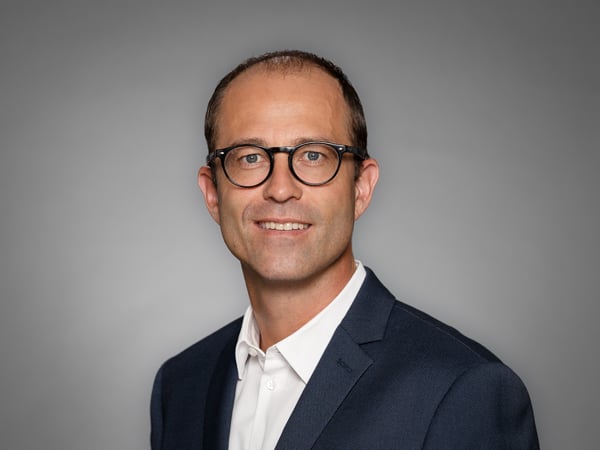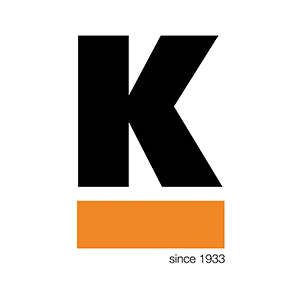
On April 1, 2020, Mathias Brand took over the management of Kilchenmann AG from Ulrich Jost. Given the eventful year, it is not surprising that the interview planned for the first 6 months had to wait until the new year.
What has impressed Mathias Brand over the last 9 months, the areas in which he wants to develop Kilchenmann, his management style and what a perfect summer's day looks like for him - we found out all this and much more from him.
Mathias, please tell us something about your life before Kilchenmann.
In a nutshell: As part of my work for various companies - such as Alpine Energie AG, Cablex and ARGE CPC - I have traveled a lot abroad and also within Switzerland, which has had a lasting impact on me. From the construction of a mobile phone system in the desert of Oman to various national road projects in Serbia-Montenegro and the management of the construction commission for the Ceneri Base Tunnel, I was able to supervise and support an enormous number of challenging and complex projects. It was all very instructive and exciting. The disadvantage of all these activities was that I was away from home very often - I regularly left the house on Sunday evenings and only returned on Friday evenings. When our son was born in 2008, I no longer wanted to travel so much, which is why I changed jobs from Alpine Energie AG to Cablex.
You say that this time shaped you. What do you mean by that?
The post-war period in Serbia-Montenegro was a very special, but also depressing experience. We witnessed a lot of misery there and - to put it bluntly - were not always free of fear. On the other hand, what was beautiful and impressive was the friendliness of the people that I experienced everywhere - especially, of course, in Ticino in recent years while working on the Ceneri Base Tunnel.
Let's move on to Kilchenmann: How would you explain Kilchenmann's offer in an elevator pitch - i.e. in 3 sentences?
Kilchenmann offers professional audio, video and multimedia technology - both for fixed and mobile installations. So if you as a customer want to combine image, light and sound professionally and in the highest quality and have them installed in such a way that everything works together perfectly, you've come to the right place.
What excites you about this company?
There are many things. First and foremost, however, I would emphasize the enormous passion that the Kilchen men and women have for the company and their job. I have rarely experienced this in this form and it motivates me every day. To be honest, I am proud to be able to lead such a team.
Tell us something about how you experienced the first few months - it wasn't exactly an easy year in many sectors due to coronavirus.
At Kilchenmann, 2020 was a year of ups and downs in the truest sense of the word - with both positive and negative signs. We all know that all events had to be canceled in the Corona year, which of course also had a major impact on Kilchenmann. So I joined the company at a very turbulent time with plans and ideas about the future and had to deal with other issues first. At the same time, the Covid-19 restrictions quickly made it clear to employees that we had to move forward with digitalization. New questions and challenges arose that we had to tackle together. One example is the question of how we can bring events into the virtual world or how we can support our customers with fixed installations to collaborate digitally while working from home. It's not done with a microphone and monitor. Image, light and sound need to be combined into a single, easy-to-use unit. As we all know, video conferencing has experienced a boom - and this has also raised many technical questions that we have had to answer and solve. We have all experienced how we have not seen or heard each other or wanted to share documents during video conferences. This in turn shows that professional video-audio technology is anything but simple.
Let's look to the future: where is Kilchenmann headed?
Like many companies, corona has given us a digitalization boost. We were already ready with a digital strategy a year earlier and wanted to start adapting both the organization and processes accordingly in 2020. Due to the extraordinary situation, everything happened a little faster. The necessity of the adjustments was obvious due to the situation, so we didn't have to do much convincing of the employees. Nevertheless, cultural change takes time because every individual is different. Some lead the way, others follow. This is not meant to be judgmental; each path has its justification and purpose. Our task is to turn this into a common path. We haven't quite reached our goal yet, but we are on a very good path and in the consolidation phase, in which we are not losing sight of digitalization, playing a leading role in new technologies and taking on a pioneering role. The team is pulling together and that's fun.
What leadership principles would you have wished for from your former bosses? And what principles are important to you in your role as CEO today?
When I was not yet CEO and had my own superiors, I always wanted my boss to give me a lot of freedom so that I could move and develop within my field of activity within the framework of certain guidelines. At the same time, he should be there for me when I needed him. Communication on an equal footing with a grounded personality was also always important to me - so I didn't want a boss who sat on his high horse and didn't let his employees get close to him. I hope that I live up to the standards I set for my bosses back then. Under no circumstances do I want to be a snooty boss who doesn't see eye-to-eye with his team or is not approachable. It's important for me to be authentic with my employees and to keep my feet on the ground. Everyone should be able to talk to me, from apprentices to fitters. That's probably also something left over from my apprenticeship. I had to do all the work that you give an apprentice, but I was always treated with respect. This genuine appreciation shaped me.
And how do you react in difficult situations?
We live for our customers, want to maintain our forward culture and achieve our goals. Of course, you have to work for success. Because, as we all know, nothing comes from nothing. Employees need to be aware of this and sometimes there are situations where you have to be tough. But that also works very well if you remain correct and decent. Everyone has their role, their tasks, their competencies and their responsibilities - but everyone is equally important. For me, leadership is not a theory, but a passion. This is my role now and I want to perform it just as well as all other employees perform their tasks. Because without them, the company would be nothing. The ultimate goal is for the team to enjoy working at Kilchenmann. And we don't achieve that by being a choleric leader. In my view, it's much more about getting the employees on board by showing them transparently what goals we are pursuing.
How do you make sure that you don't get lost in day-to-day operations or that you can take creative breaks?
I am working on implementing a universal, or at least similar, agenda throughout Kilchenmann. What do I mean by that? The idea is that Tuesday, for example, is the day on which internal meetings take place. So that meetings are not on the agenda every day. That way you can concentrate on your work. For me, Monday is reserved for my own and VR topics - and is therefore also the day on which I can think about things and develop ideas. I also like to stay in my home office so that I can consciously take breaks to think, for example. And during a real break, I also go jogging from time to time.
A completely different, hypothetical question: for once, you have an empty diary. What are you going to do with the day?
It all depends on whether my wife is working that day or not. If she's free, we'll probably do something together. Or I visit a customer. And my favorite thing to do is spontaneously walk through the aisles at Kilchenmann, talk to people and ask how they're doing.
A final question: In job interviews, you are often asked what your strengths are. What are you particularly good at and what are you less good at?
I'm less good when it comes to waiting. I tend to be impatient when it comes to progress. But I've learned that as a manager you have to exude calm and I don't let it show. From my point of view, that doesn't help either, because it doesn't spur people on, it scares them. And I don't want to stir up fear in my dealings with employees. I'm good at listening and inspiring people - at least from my point of view. And finally, humor is also important to me, because it makes a lot of things easier and more bearable.
Thank you very much for the interesting interview, Mathias.
If you would like to get to know our CEO Mathias Brand a little better in private, click here for the video. Have fun!

Leave a COMMENT